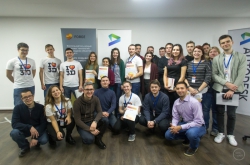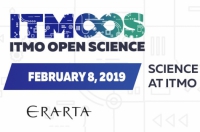What are the present problems in education related to the Internet of Things?
Internet of Things is a fast-growing market which changes really fast, and it's often hard to monitor its new trends. That is the reason why it's hard to find an educational course that gives the whole picture of modern IoT. I checked several programs from European, Canadian and Asian universities, and it turned out that they face a similar problem: while they work out the course and train lecturers, the trends change and the program is no longer relevant. Another pressing problem is a lack of time and resources to launch a full-fledged IoT course.
Will the new IoT course be targeted at professionals only, or it'll do good for common people as well?
We believe that we have to create several programs for this course. Surely, we'll develop a educational module for university students who'll take it up as an elective course to get at least basic knowledge in this field. We'll also develop an online course for those who can't attend lectures at the university. Giving people at least the basic understanding of IoT is quite important — many still don't understand that it's not only the devices themselves, but also the infrastructure that interlinks them. When I tell my friends of this technology, they get surprized, but say that it's dangerous. Many believe that with Internet of Things, hackers will abuse their personal data. Others fear that a smart house system that uses IoT will once restrict their access to their home. For me, that's laughable, but for common people it's not. That is why we have to show that this technology is safe, and get people to know it — with whatever means possible. According to the policy of IOT-OPEN.EU, all the materials of our educational project will be in open access.
Will there be different educational technologies used for different groups of students?
I don't like the idea of dividing people into different groups like "student" or "specialist". Sometimes, those with no higher education do a lot better in the IoT market than honours students from some university. It all depends on the person's skills, on his motivation. There will be two levels of the course — basic and advanced. The latter will be targeted at people with advanced knowledge, it'll include such topics as network security and the like.

From my point of view, the best education is when you get fun while studying. For example, we had a great computer laboratory at our university, with lots of equipment, devices, computers, even supporting personnel. But the students didn't feel comfortable there, as the atmosphere was too official. Then I proposed buying LEGO Mindstorms for the laboratory, so as students could try creating something with their hands, not just work on computers.

How do you plan to promote the courses?
First of all, amongst students. Then, we'll promote it at different international events in different EU countries. We'll also involve specialists who work in this industry and have the necessary contacts. Also, different online courses are becoming more and more popular. People have begun to understand that now, one can't just get an education and then forget all about learning. Everything changes too fast.
Most people don't get if IoT is already part of their lives or not. So, which is it?
Actually, it's still an open question. Formerly, people would say that IoT is some small device that collects data and then uploads it into a network, where it is processed to get a result, or stored. That would be automated control systems, the systems used in industry. In a similar fashion, we can call modern devices like smart clocks or fitness trackers examples of IoT. Their computational capacity is far greater than the one computers had some ten years ago. Still, one has to understand that IoT implies an infrastructure connecting the devices — so to say, their intercommunication. When you just send in data via network, it's not the same. In IoT, devices forward data to each other. And that implies using some AI that will analyze these links and take action.
Among other collaborators of the IOT-OPEN.EU project are representatives from the Silesian University of Technology, Riga Technical University, Tallinn University of Technology and University of Messina. Officially, the project starts in December and will take up to three months.You can read this in detail here.





